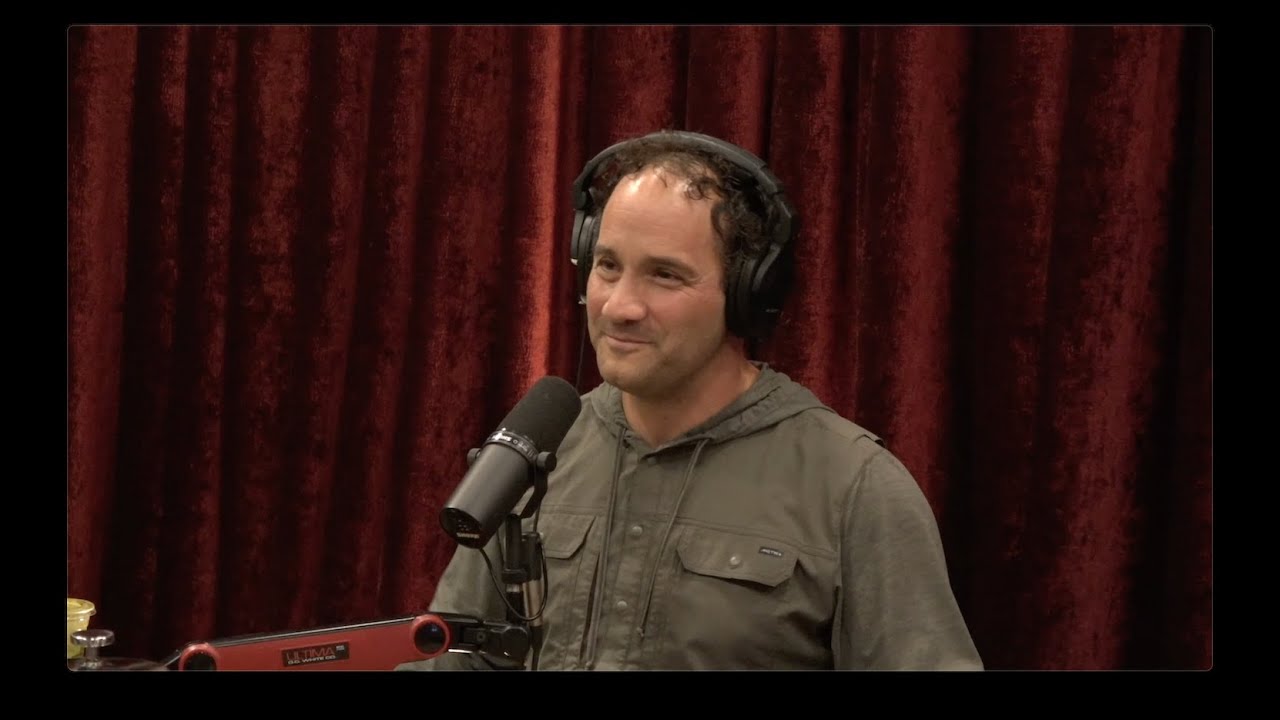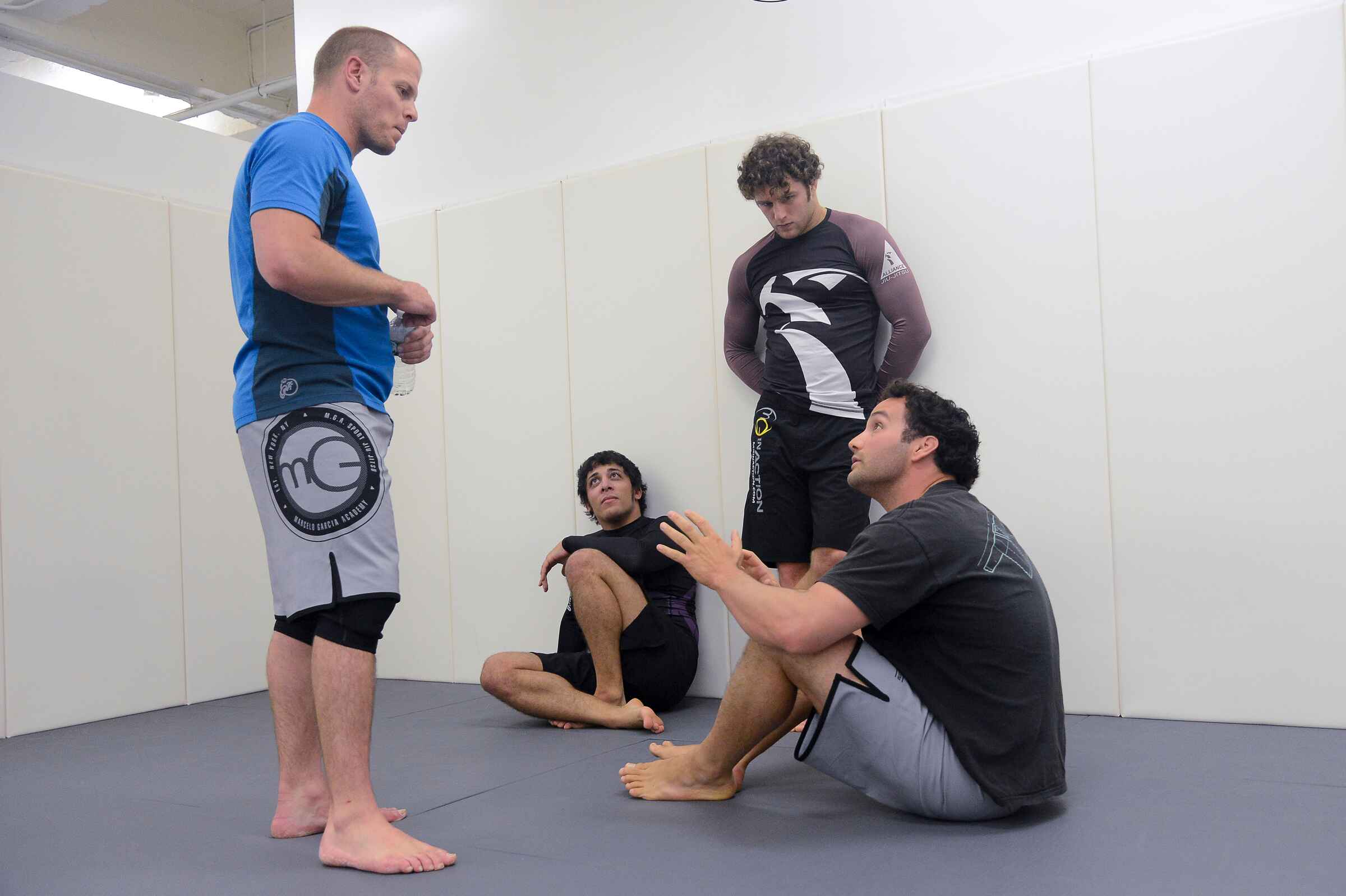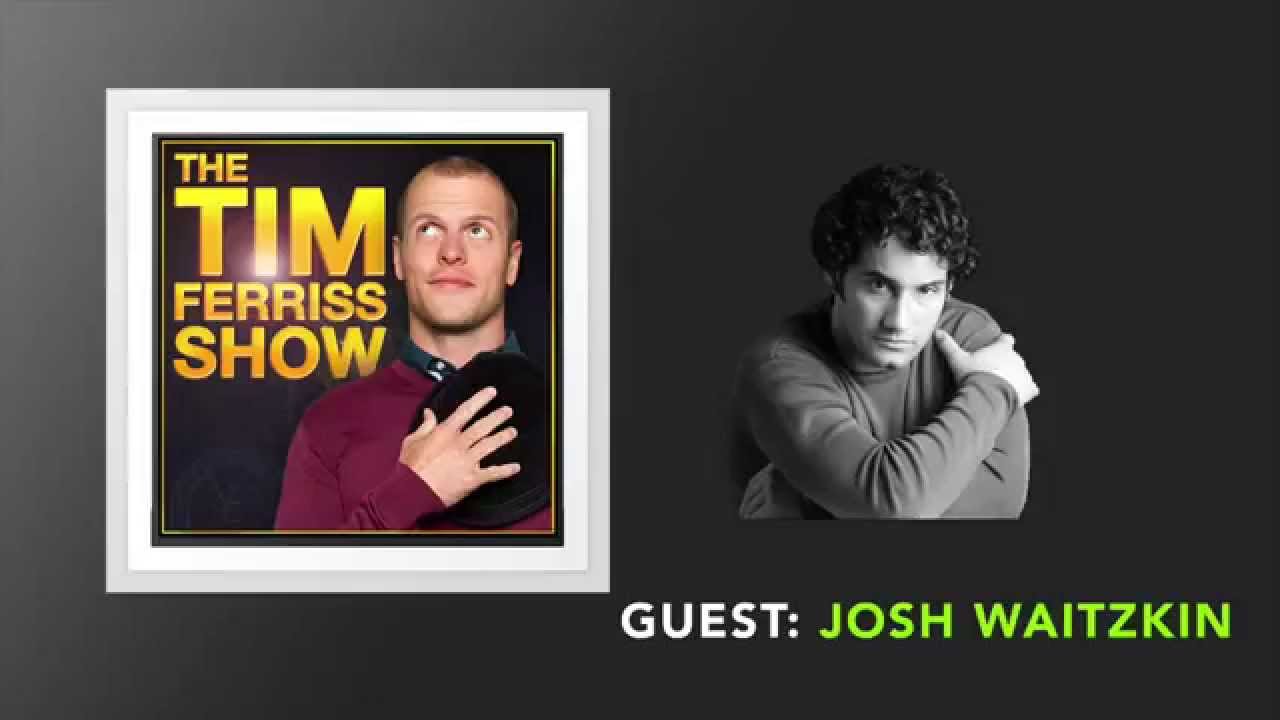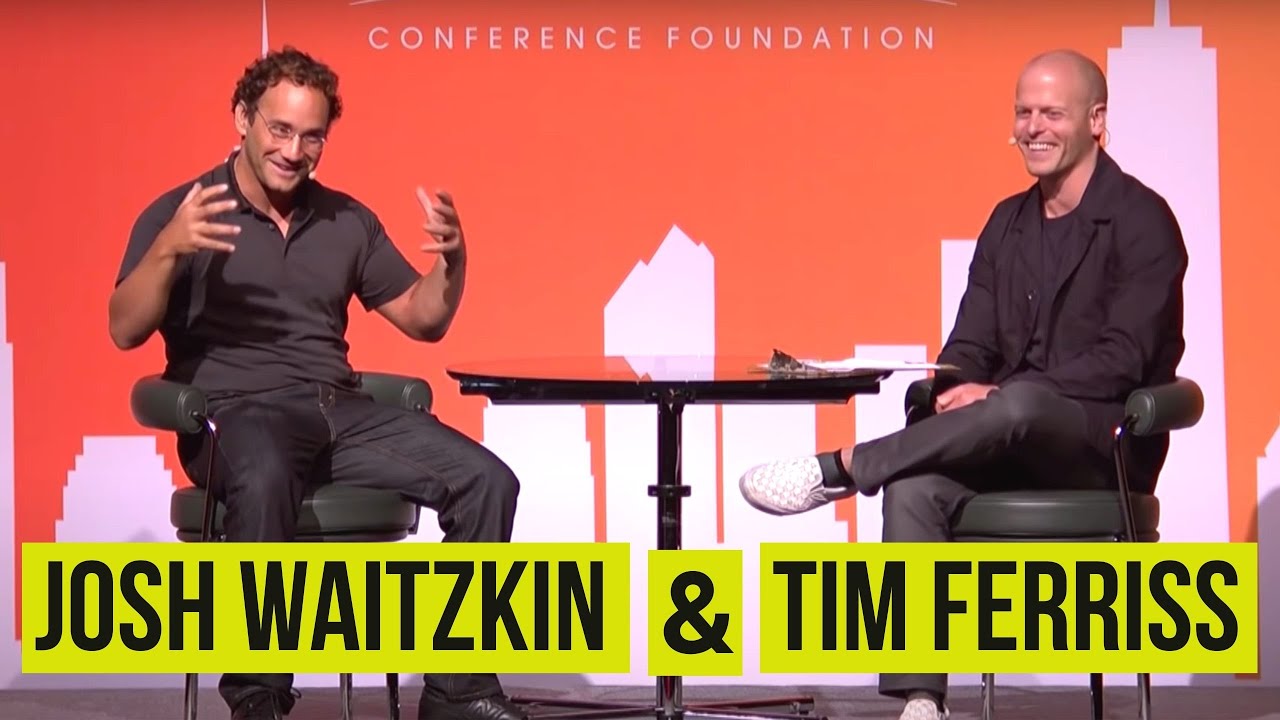
Josh Waitzkin on The Joe Rogan Experience Podcast: 20 Key Lessons and Takeaways
Explore Josh Waitzkin's profound insights from his Joe Rogan interview on mastery, learning, and personal growth across multiple disciplines.
5 Most Impactful Quotes
-
"If you're playing at your edge, it feels beautiful, it feels like where I want to be, but the comfort zone doesn't feel beautiful."
- Josh Waitzkin on pushing limits as a way of life
-
"We need to cultivate some way of life where we're grounded in some kind of feedback loop in our training life that there's no bullshit involved."
- Josh Waitzkin on seeking accountability
-
"I relate to myself now like I've died and I'm living, and I have a commitment to living life as beautifully and deeply and truly as I possibly could, and to not let anything slip."
- Josh Waitzkin after a near-death experience
-
"Most great surfers are brilliant low rep learners, because by necessity in the ocean, you don't get tons of reps."
- Josh Waitzkin on the adaptability of elite performers
-
"The reason that people often can't cross level over from one thing to the other is that they learn it in a localized language... You can learn chess in a language which connects to all of life."
- Josh Waitzkin on transferable mastery
Top 20 Takeaways with Relevant Transcript Snippets
1. Embrace transitional spaces
"I think in the martial arts, people are so focused on position when they're learning—position, position, position. But the in-between is where the real virtuosity happens... He maximized his time in the in-between."
Joe on Marcelo Garcia's approach to jiu-jitsu, highlighting how true mastery is found in transitions, not static positions.
2. Failure is essential for growth
"My first national championship, I got my ass kicked, which was tremendous. It was great... Because I didn't learn that I could win without getting my ass kicked first. I had to grapple with my demons."
Josh on his early chess career and how facing failure was critical to his development.
3. Living on the razor's edge
"I love training. I love pushing my limits as a way of life, in whatever I'm doing. If it was chess, if it was fighting, now it's foiling, surfing, and then foiling in the biggest waves I can find... if I'm playing at my edge, it feels beautiful, feels like where I want to be."
Josh on his approach to life and the beauty found in constantly operating at your edge.
4. The interconnectedness of mastery
"These arts, to me, are connected... when you get toward the pinnacle of an art, is that you start to experience that the apexes of these arts are much closer to one another than lower down in the mountain of the same art."
Josh on transferring mastery between disciplines and how principles converge at the highest levels.
5. Beginner's mind as a superpower
"Children don't have to unlearn that—they haven't learned it in the first place. So they're unblocked... my little boy Charlie learning how to surf was so beautiful to watch. He just grew up in the ocean... it wasn't technical... he could be right foot forward or left foot forward... he just danced on the board and would find his way."
Josh on how children learn naturally without the constraints of adult preconceptions.
6. Training as a feedback loop
"If you're a chess player and you make a mistake and you lose, the people who say that's not my fault—they're irrelevant very very quickly. They just get blazed by."
Josh on the importance of objective feedback and accountability in training.
7. The danger of success without struggle
"If you're a real prodigy, and there are people out there that are just extraordinary from the beginning, I find that if success comes too quickly, you don't develop the metal to really push through boundaries and reach new levels."
Joe discussing the necessity of challenge and adversity for deep development.
8. Unburdening from identity
"When I first started having success, they developed a mental model to replicate the success... But then the groove becomes a rut they get stuck in... they hold to an old mental model based on a success 10 years ago or 20 years ago, and they're trapped in it for the rest of their lives."
Josh on the importance of adaptability and letting go of outdated mental models.
9. Document your decisions
"If you make a decision, write down what the decision is, and write down why you made the decision, and then look back on it in a week or two or three... if the reasons for making the decision no longer are valid, but you're holding to the decision, which is what everyone does—then don't do that."
Josh on decision-making processes and avoiding outdated reasoning.
10. Embrace the pain of learning
"So many people I've observed who are great surfers, they want to learn to foil... but then they try once and they get their ass kicked... Now you have to look like a beginner again. You have to go from being the coolest guy in the lineup... to being the guy who's getting his ass kicked... And they don't want to do that."
Josh on ego barriers to learning and the courage required to be a beginner again.
11. Coaching is individualized
"When I start working with someone, I try to get to know them very, very deeply, their patterns, their patterns of success, their patterns of failure, where their genius and their dysfunction are entangled."
Josh on his coaching philosophy and the importance of deep understanding.
12. The genius-dysfunction entanglement
"All of his pain is with him every moment... we think of this brilliant low rep learner, the guy who has a superhuman ability to learn from one experience, but it ravages him all the time, and you can't just remove that. You can't be like, 'Yeah, release your pain, be great.' Then you're also releasing the genius."
Josh describing Marcelo Garcia and how pain and genius are often interconnected.
13. Dynamic quality over static quality
"We have to live in a state of dynamic quality, not static quality. Like, think about the front of the freight train surging through spacetime, versus sitting in the restaurant car."
Josh on Robert Pirsig's philosophy and the importance of living at the edge of creation.
14. The post-conscious competitor
"The journey like, most people don't run into that for a long time. There are some chess players that just become insanely strong without ever reflecting on the absurdity of the fact that they're just playing chess... The moment you become aware of the fact that you're mortal... you get locked up by that knowledge."
Josh on self-awareness in competition and how awareness can both help and hinder.
15. Intelligence patterns as frames
"It's like an illusionist. Great illusionists, magicians, mind-control guys—they have the ability to see in frames that we don't have the ability to see, and so it seems like magic, it seems like illusion... It's like having a language, and you have access to a larger vocabulary."
Josh on expert perception and the patterns that experts recognize that others don't.
16. Technological disruption requires adaptability
"The pace of technological disruption is accelerating so fast... we're going to be living in a world where AI is better at everything than we are. We have to become like children in how we learn... We're going to have to release the egoic relationship that we have to our level, to our knowledge, to everything."
Josh on preparing for AI and the need for continuous adaptation.
17. The false safety of mental models
"There comes a moment where someone's consciousness becomes more complicated, and they can't just return to the innocence they had before... you can't put it back in the box. It's out. So then you have to work through that journey."
Josh on evolving beyond comfort and the journey through increased awareness.
18. The danger of playing not to lose
"You start protecting the lead versus dominating the opponent. But then you let the opponent feel their strength, feel their greatness—they're not dominated anymore. The moment a fighter stops feeling dominated and starts to tap into their greatness, then your opponent's a beast again."
Josh on competitive mindset and the importance of maintaining an offensive approach.
19. Cultivate low-rep learning
"Most great surfers... are excellent at learning from one or two reps, like Marcelo Garcia is on the mats... Foiling is one could say more technically complex than surfing... but it's more trainable because you can replicate conditions."
Josh comparing learning modalities and the value of extracting maximum learning from minimal experience.
20. Near-death as transformation
"I drowned in a pool about nine, ten years ago. I was doing hypoxic breath work, Wim Hof training, in a pool... I was in the bottom of the pool for over four minutes after blacking out from shallow water blackout... I felt the potential for some PTSD response... I just decided not to let it in, and I got back in the water the next day."
Josh on life-changing experiences and his approach to overcoming trauma.
Applying Josh's Insights Through MIQ Journaling
Josh Waitzkin's conversation with Joe Rogan reveals principles that can transform how we approach challenges and personal growth. Through regular journaling, particularly using the MIQ method, you can apply these insights to your own development:
- Document decisions and review them - Josh emphasizes writing down not just what you decide, but why. MIQ Journal helps establish this practice of recording your thought processes, allowing you to identify when you're holding onto outdated reasoning.
- Embrace learning discomfort - Josh describes how ego prevents many accomplished individuals from learning new skills. Evening journaling questions can help confront your resistance to appearing as a beginner again.
- Cultivate feedback loops - Josh stresses the importance of training environments that provide honest feedback. Your journal serves as a personal feedback mechanism when you track patterns of success and failure over time.
- Release rigid mental models - Josh cautions against holding onto outdated formulas for success. The MIQ process encourages fresh perspectives by engaging your subconscious mind rather than recycling familiar thoughts.
Example MIQ Journal Prompts Inspired by the Podcast
Try these evening questions in your MIQ Journal practice to leverage Josh's insights:
- "What uncomfortable learning edge am I avoiding, and what's one small step I could take tomorrow to embrace it?"
- "How can I create more objective feedback loops in my current projects or practices?"
- "What mental model or framework am I clinging to that may be limiting my growth?"
- "Where in my life could I benefit from approaching a challenge with a beginner's mindset?"
- "What principles from one area of mastery could I transfer to a completely different domain?"
MIQ Journal provides the ideal framework for implementing these types of reflective prompts, with structured evening and morning sessions that engage your subconscious mind.
Conclusion
Josh Waitzkin's appearance on The Joe Rogan Experience offers deep insights into mastery, adaptability, and growth across disciplines. His journey from chess prodigy to martial artist to ocean sports enthusiast demonstrates the power of transferable principles in learning and performance.
By using MIQ Journal to capture your most important questions each evening, you can begin to apply Josh's wisdom to your own path of growth and development. The MIQ approach aligns perfectly with Josh's emphasis on deliberate reflection, embracing discomfort, and pushing beyond familiar territory.
Start your MIQ Journal practice today and harness the power of evening questions for morning breakthroughs.
Transform Your Thinking with MIQ Journal
Join a tribe of professionals who are unlocking deeper insights and better decision-making through the power of evening questions and morning reflection.
Recommended Articles

Explore Josh Waitzkin's profound insights on flow states, near-death experiences, training methodologies, and cultivating intuition from his second conversation with Tim Ferriss.
Read more →
Discover Josh Waitzkin's profound insights on mastery, learning, and performance from his conversation with Tim Ferriss, including the MIQ method and principles for excellence across disciplines.
Read more →
Josh Waitzkin shares powerful insights on how he compresses months of deliberate practice into single days through his systematic approach to learning, the MIQ method, and optimal day structuring.
Read more →